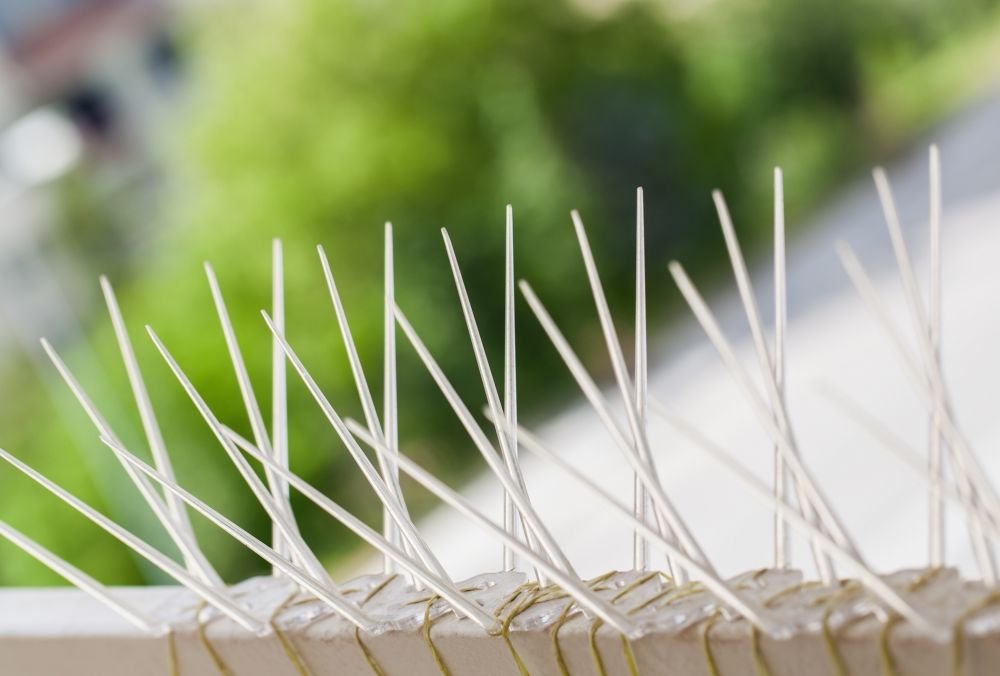Introduction
Birds are an integral part of urban ecosystems, contributing to biodiversity and ecological balance. However, their presence in urban areas can sometimes lead to challenges, particularly in densely populated cities like Dubai. To address issues related to bird infestation and its impact on infrastructure, the integration of bird spikes has emerged as an effective solution. This article explores the significance of bird spike integration in Dubai’s infrastructure and its broader implications.
Understanding Bird Spike Integration
What are bird spikes?
Bird spikes are devices designed to deter birds from perching or roosting on buildings, ledges, or other structures. They are typically made of materials such as stainless steel or polycarbonate and feature pointed spikes that make it uncomfortable for birds to land.
Importance of bird spike integration
The integration of bird spikes in Dubai serves multiple purposes, including preventing property damage, reducing health hazards associated with bird droppings, and maintaining the aesthetic appeal of buildings and structures.
Bird Spike Integration in Dubai
Current bird-related issues
Dubai, known for its modern architecture and urban development, faces challenges related to bird infestation. Pigeons, in particular, are a common sight in urban areas and often pose problems such as soiling buildings with droppings, causing damage to facades, and creating hygiene concerns.
Benefits of integrating bird spikes
Integrating bird spikes in Dubai’s infrastructure offers several benefits. It helps in minimizing maintenance costs associated with cleaning bird droppings, preserving the structural integrity of buildings, and ensuring a cleaner and safer environment for residents and visitors.
Steps to Implement Bird Spike Integration
Assessment and planning
Before installing bird spikes, a thorough assessment of the affected areas is essential to identify the most suitable locations for installation. Factors such as bird species, nesting habits, and architectural considerations need to be taken into account during the planning phase.
Installation process
The installation of bird spikes involves securely fixing them to surfaces where birds are likely to perch or roost. This process requires skilled technicians to ensure proper placement and effectiveness.
Maintenance considerations
Regular maintenance is crucial to ensure the long-term effectiveness of bird spikes. This includes cleaning debris and bird droppings from the spikes, inspecting for damage or wear, and replacing damaged spikes as needed.
Impact on Dubai’s Infrastructure
Enhancing cleanliness
By deterring birds from roosting on buildings and structures, bird spikes supplier in Dubai integration helps in maintaining cleanliness and hygiene in urban areas.
Preserving architectural integrity
Bird spikes protect buildings from damage caused by bird droppings, thereby preserving their aesthetic appeal and structural integrity.
Promoting safety
Reducing the presence of birds in urban areas minimizes the risk of accidents and health hazards associated with bird droppings, such as slips and falls.
Environmental Considerations
Non-harmful to birds
Bird spikes are designed to deter birds without causing them harm. They provide a humane solution to bird-related issues while ensuring the well-being of avian populations.
Eco-friendly materials
Many bird spikes are made from environmentally friendly materials such as stainless steel or recyclable plastics, making them a sustainable choice for urban bird control.
Economic Viability
Cost-effectiveness
Although initial installation costs may vary depending on the scale of the project, bird spike integration proves to be cost-effective in the long run by reducing maintenance expenses and minimizing damage to infrastructure.
Long-term savings
The implementation of bird spikes leads to long-term savings for building owners and municipalities by reducing the need for frequent cleaning and repairs caused by bird infestation.
Public Perception and Acceptance
Education and awareness
Educating the public about the benefits of bird spike integration and the importance of bird control measures can help garner support and acceptance for such initiatives.
Community involvement
Involving the community in bird control efforts through outreach programs and volunteer opportunities fosters a sense of ownership and responsibility towards maintaining urban cleanliness and hygiene.
Case Studies
Successful integration examples
Several landmark buildings and structures in Dubai have successfully integrated bird spikes, demonstrating their effectiveness in mitigating bird-related issues and preserving architectural integrity.
Future Prospects and Innovations
Advancements in bird spike technology
Ongoing advancements in bird spike technology continue to improve their effectiveness and durability, offering more innovative solutions for urban bird control.
Potential applications in other regions
The success of bird spike integration in Dubai’s infrastructure paves the way for its adoption in other cities and regions facing similar challenges with bird infestation.
Challenges and Limitations
Maintenance issues
While bird spikes are effective in deterring birds, regular maintenance is essential to ensure their continued effectiveness, which can sometimes be labor-intensive.
Aesthetic concerns
Some individuals may have aesthetic concerns about the appearance of bird spikes on buildings, necessitating careful consideration during the planning and installation process.
Regulatory Framework
Compliance with local regulations
Before implementing bird spike integration projects, it is important to ensure compliance with local regulations and building codes governing wildlife management and urban development.
Legal considerations
Legal considerations, such as permits and approvals, may be required for bird spike installation in certain areas, highlighting the importance of adhering to legal requirements.
Collaborative Efforts
Partnerships with wildlife conservation organizations
Collaborating with wildlife conservation organizations can provide valuable insights and expertise in implementing bird spike integration projects while ensuring the protection of avian species.
Government initiatives
Government support and initiatives play a crucial role in promoting the adoption of bird control measures and facilitating collaboration between stakeholders involved in urban development and wildlife management.
Conclusion
Bird spike integration in Dubai’s infrastructure represents a proactive approach towards addressing bird-related challenges in urban areas. By deterring birds from roosting on buildings and structures, bird spikes contribute to enhancing cleanliness, preserving architectural integrity, and promoting safety. As advancements in technology continue to drive innovation in bird control measures, the integration of bird spikes serves as a sustainable solution towards achieving harmony between urban development and environmental conservation.
